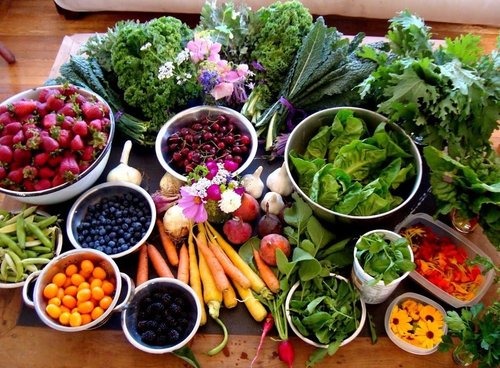By Val Cocksedge
NCWQ Nutrition Adviser
New U.N. Decade – General Assembly decides 2016-2025 will be the Decade of Action on Nutrition, recognising the need to eradicate hunger and prevent all forms of malnutrition worldwide, particularly under-nourishment, stunting, wasting, underweight and overweight in children under five years of age. It also states that the rising trend in overweight and obesity should be reversed and the burden of diet related, non-communicable diseases in all age groups be reduced. Refer FAO Website: www.fao.org/news/story/en/item/408970/icode/
The tenth Annual Australia’s Healthy Weight Week (AHWW) held 13-19th February was run by the Dieticians Association of Australia (DAA). The campaign aimed to inspire Australians towards good health to help them achieve and maintain their healthiest weight possible. www.healthyweightweek.com.au
World Home Economics Day – 20 March. Theme is Home Economics Literacy – Empowering for Healthy and Sustainable Lifestyles. Refer: www.ifhe.org/1110/
Australia’s obesity epidemic cannot be denied or ignored. Alarming statistics show that 63% of adults and one in 4 children are overweight with some classified as obese. This is of national concern with financial personal and social cost. Our health bill is $56 billion more than it would be otherwise. There are 1.4 million Australians with Type2 diabetes – a tally added to with newly diagnosed cases every day.
Australian adults are getting 35% of their energy from discretionary foods which include desserts, confectionery, fried food, processed meats and soft drinks. For those aged 14-18 the number rises to 40%.
The 47% point obesity action plan was drawn up by 100 nutrition experts from 53 organisations in conjunction with state and federal government staff.
Junk food would be banned from schools and sports venues and a sugar drink tax introduced under a blueprint to control the nation’s weight problem. The 47 point blueprint also includes a plan and crackdown on using junk food vouchers as rewards for sporting performance and for fund raising. State governments would be compelled to improve the healthiness of foods in settings controlled by them – such as hospitals, work places and government events. Also changes in urban planning rules to restrict unhealthy food venues and to make more space available for healthy food outlets.
The review of state and federal food labelling advertising and health policies found huge variations across the country and experts want it corrected by a National Nutrition Policy.
Half of all Australians are exceeding World Health Organisations (WHO) recommendation – they consume less than 13 teaspoons of sugar a day. With most hidden in drinks and processed foods (Australian Bureau of Statistics Health Survey) research says its time for politicians to put the interest of people and their health above food industry lobbyists. The U.K. will introduce a sugar tax next year. Chile has passed a number of laws to curb the country’s high obesity rate, particularly among children.
They have an 18% tax on sugary drinks. They have packaging warnings on any packaged food that exceeds a certain amount of kilojoules, sodium, sugar or saturated fat. Foods with a warning sign cannot be sold in schools or advertised to children under 14. They cannot be sold with a toy, resulting in McDonalds modifying its children’s meals to still be eligible to include toys in their promotions. Mexico imposed a sugar tax 3 years ago and has recorded a drop of 12% in consumption of sugary drinks.
The Health Minister, Greg Hunt said the government did not support a new tax on sugar. Opposition Leader Bill Shorten said Labor had no plans on a sugar tax but called on governments to review junk food advertising, particularly at peak periods where children get the wrong message about food and healthy eating. The Greens Plan to introduce a private Senator’s Bill for a tax on sugar – sweetened drinks similar to the one proposed in the U.K.
The American Heart Association said children should have only 3 teaspoons of added sugar in their diet. A single can of soft drink contains approximately 12 teaspoons, baked beans – 5 teaspoons, muesli bar 6-7.
The children’s Lady Cilento Hospital in Brisbane, is pushing for a ban on soft drink sales at the hospital and is intent on removing soft drinks from vending machines and eateries.
The quality of Australian toddlers’ diet has been found to deteriorate between the age of 14 and 24 months as they consume foods high in salt and fat rather than vegetables, fruit, whole grains and meat.
There is evidence the benefits of a Mediterranean Diet with new research showing it can slow down cognitive decline as well as improving heart health. (Journal Frontiers in Nutrition). The main foods in the Mediterranean (Med Diet) include plant foods (leafy greens, fresh fruit and vegetables, cereals, beans, seeds, nuts, legumes). It is lower in dairy, has minimum red meat and uses olive oil as its source of fat. Researches from the Centre for Human Psychopharmacology at Melbourne Swinburne University of Technology analysed data from 2000 – 2015 found attention, language and memory were positively affected by the Med Diet.
The Queensland government is encouraging consumption of different coloured fruit and vegetables with different nutrients and health benefits – helping give your body vitamins, minerals and anti-oxidants it needs to stay healthy developing a coloured wheel – “Give Colour a Spin” shown on TV and in newspapers: discover more at: www.healthier.qld.gov.au You can spin the colour recipe wheel for a variety of colour coded recipes.
The Free Fruit for Kids Program, with baskets of complimentary seasonal fruits placed n all 961 of the supermarket giants national stores to encourage children to eat more fruit and vegetables.
Second Bite was founded to provide fresh nutritious food for people in need across Australia and to reduce amount of food being thrown away. Coles joined Second Bite in 2011 with more than 600 Coles Supermarkets regularly donating fresh fruit, vegetables and bread to Second Bite.
Foodbank Queensland collects food for 300 welfare agencies and 200 school breakfast programs.
The AMA has urged transparency in food labelling laws to a forum of Australian and New Zealand Health Ministers.
Palm oil has more than 50% saturated fat and can raise cholesterol. Manufacturers at present are not required to distinguish the vegetable oil used in their products. The United Nations estimates that the product is used in about half of all packaged goods. More than 80% of palm oil comes from S.E.Asia where forests that house, already endangered orang-utans are being destroyed to make way for palm oil plantations. In the U.S. and European Union products using palm oil must be clearly labelled.
Vegemite is in Australian hands after almost 91 years in foreign ownership. N.S.W. Dairy company Bega Cheese bought the breakfast favourite from Mondelez International a former Kraft subsidiary. The deal includes Goo Sh and Bonox together with other products that use the Kraft Brand under licence (peanut butter, cheese spreads, processed slices, mayonnaise, parmesan cheese, Kraft Mac & Cheese).
According to the Dieticians Association of Australia, a national survey of 1033 Australians, nearly half had tried to lose weight and half of those did so by spending their money on specific diet or diet program. Many popular diets come with meal plans and programs; priced up to $200 for 8 weeks. Coconut oil pops up on many popular diets, but its around four times the cost of healthy olive oil. Sugar alternatives such as maple syrup costing more without saving any kilojoules. Products following health trends – paleo and protein bars costing approximately $3 for a 40g bar. bar – preferable an apple at 80 cents or other fruit. Watermelon, thirst quenching, full of beta carotene and vitamin C plus the antioxidant lycopene (shown to reduce stroke) boosts the immune system while fruit salad helps the body absorb calcium for strong bones.
Natural Evolution’s green banana flour (a blessing for gluten free cooks) resistant starch can improve gut health and vital for the body’s ability to access nutrients and build strong immunity. Mt Uncle’s banana flour owners and developers have linked a deal with partners in the U.K. to set up the Natural Evolution business in Europe. The North Queensland factory turns out 500 tonnes of flour a week.
The Queensland Garnet plum was developed by the Queensland Department of Primary Industries. The 6 Queenslanders at Nutrafruit hope to turn it into a global success with the fruits power in anthocyanin, a strong antioxidant. Research of University of South Queensland on rats found the plum reduced blood pressure, improved health and liver function and aided weight loss.


